Romancing SaGa: Minstrel Song Remastered (Nintendo Switch) Review
By Eric Ace  29.11.2022
29.11.2022
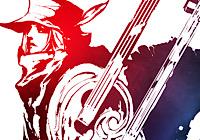
Romancing SaGa: Minstrel Song Remastered is a remake of a PS2 game that was a remake of a Super Famicom game that was very similar in style to Final Fantasy 4 in the early 90s. While the PS2 remake was a substantial overhaul to the game - the biggest going for 2D to full 3D dungeons, characters and combat - this remake is mostly just a graphical update as well as including some additional content. Players can experience the unfolding story through 8 separate characters whose viewpoints gradually tie together as their adventures bring them across the world.
Romancing SaGa: Minstrel Song Remastered is a very odd game in the realm of JRPGs. This is not because it has some strange humour like from a NIS game, but its choice of game systems, character design, and game elements are so rarely seen that at times it's tough to not think there is a reason why they didn't catch on. Taking the role of one of eight different heroes, players will embark upon an adventure that is largely of their own choosing. The plot is largely sparse, with little clue how or where to go next, and the skill system is so bewildering at times it feels more like a hardcore WRPG than anything the cutesy faces might suggest.
One thing that stands out, other than the graphical style (which will be covered later, don't worry), is from the beginning with the character selection, in that some characters are just better than others. It seems like a hidden rule these days in game design that characters are pretty equal to one another lest someone gets offended for some reason. Despite having over eight different stats, of the characters that can be chosen from, some are 2-3 times better across the board, meaning smarter, tougher, stronger and more charismatic. Guess it is a throwback to real life.
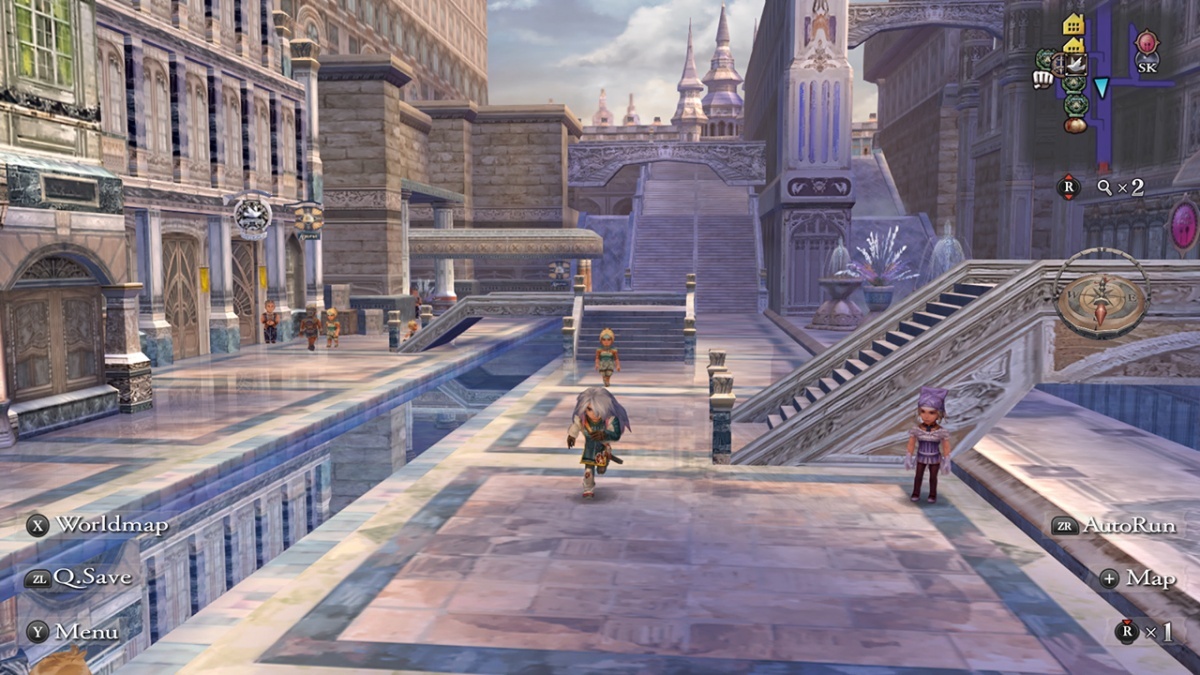
Playing the game, the flaws are pretty obvious from the start. This has to be caveated though, because for a very specific type of player, this game can be lovable. For the rest of the players, and that means the 'typical' JRPG fan, they are going to be confused by the multitude of systems, the lack of direction, and the outright feeling of being lost. This could lead to leaving a generally negative opinion on the game. This is unfortunate because it feels like their heart was in the right place. There are some really cool ideas, but it really needed somebody to add to the drawing board to cut about half of them to make the entire package more coherent.
Take for example how the characters walk/run very slow, the dungeons are usually big and empty, and there is a lot of backtracking. Thankfully, the game gives a 2x speed option, and it's still a little stunning with how long certain scenes take to play or how long it takes to run out of a dungeon the player has just successfully genocided of its inhabitants. With little direction on where to go, players will be bumbling around town after town, trying to trigger some side quest in the hopes of it furthering the story. The faster speed is nice but adds to perhaps an unintentional feeling of hurrying up and waiting as players try to progress forward.
This is unfortunate, because despite the thin story, some of it is interesting. Playing as the young noble Albert, his story starts with him needing to clear out a cave to prove his combat ability. Afterwards, his castle is attacked, and he is forced to run away seeking help from the monsters. While trying to get help, his ship is taken out by a monstrous tidal wave and is left all alone in a foreign land. Beyond some very suspicious similarities in story to Final Fantasy 4, which was released a year earlier, it still engages the player in what is happening.
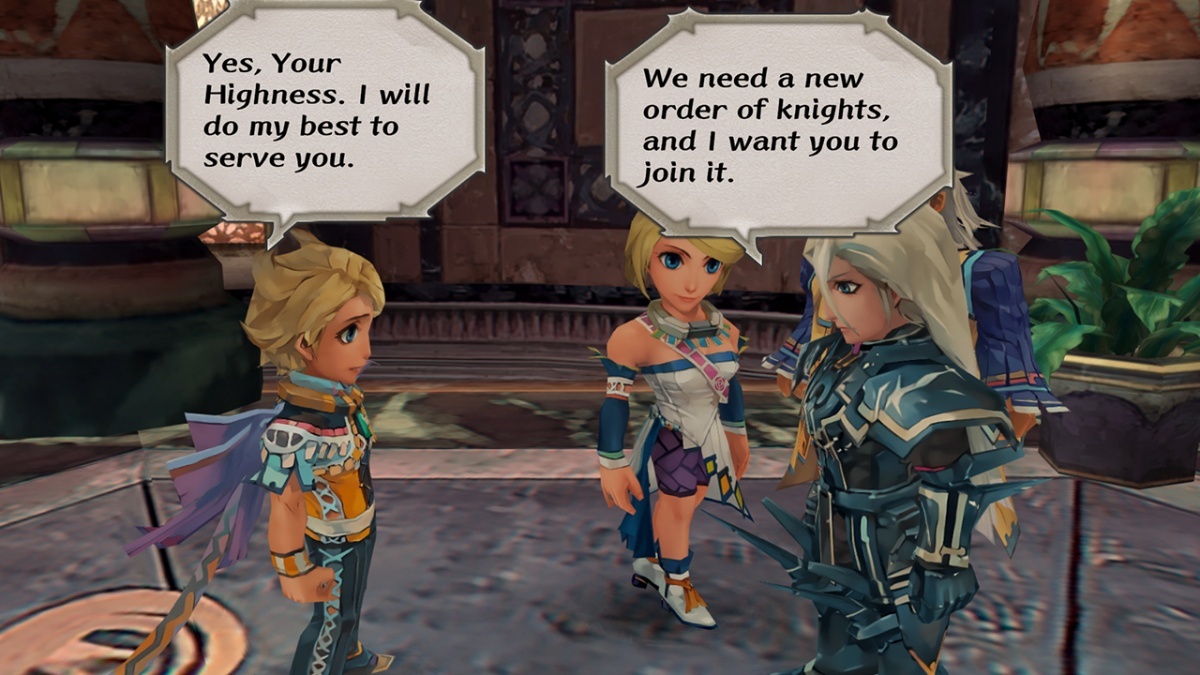
The issues dragging this game down, however, are manifold and many of them quite egregious. Any single one is often considered a death sentence for an RPG, and this one commits three notable ones. The first one up is breakable equipment, and while Fire Emblem has danced around this some in the series, gamers largely absolutely abhor dealing with this. In this game, it leads to simply avoiding using some of the cooler or stronger moves which break weapons faster. The next is random stat level ups from battle, meaning no experience bar, and anything from smashing out a bat can give the player a +STR, to surviving a battle with a boss and not be any stronger for it. The last killer issue is losable party members with no warning or recourse.
Everything about the game is more complicated than it needs to be. Each character can be in a different class, with different base 'types' of skills, of which each type has different levels. It's complicated, leave it at that. With so many skills, it was clear what they were going for, and it's a little unfortunate it didn't work as intended. For example, there are of course a bunch of different elemental magic spells to learn, like fire or water, but there is a load of various other 'classes' of skills that fall into 'leadership' or 'exploration' for example. The latter group includes moves like climbing or jumping. So, in any dungeon, if you have high enough climbing, you can climb that peak or ladder; similarly with high enough jump you can vault selected chasms.
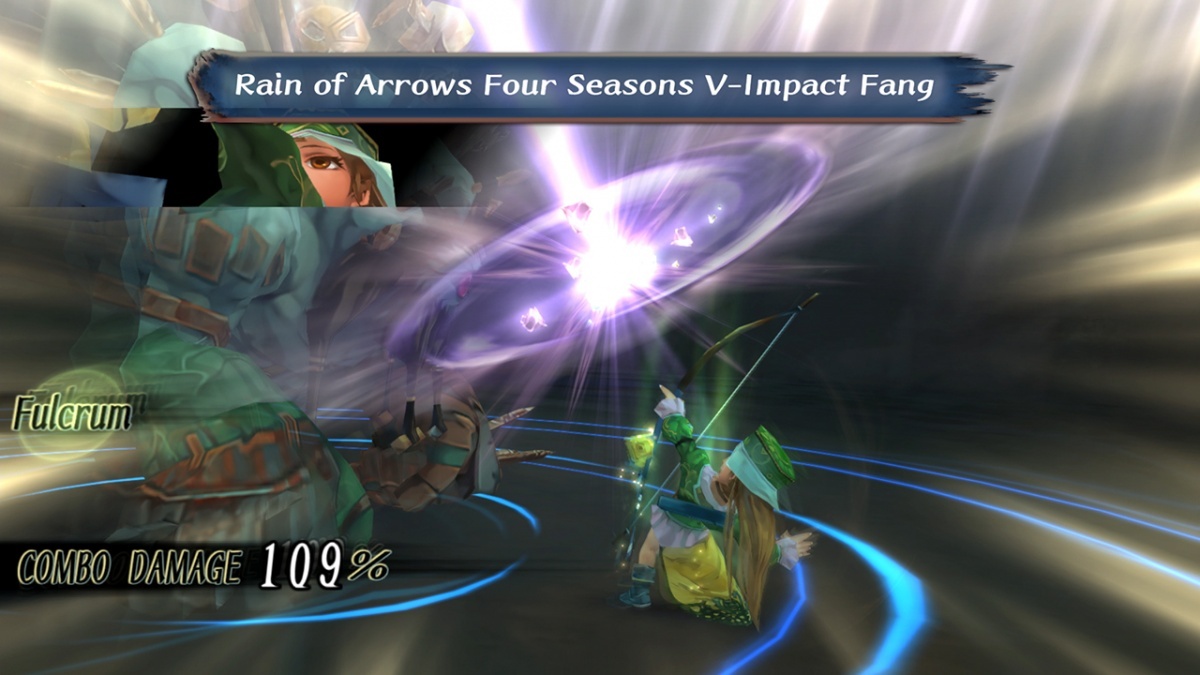
On the face of it, the idea is really awesome. This is so rarely seen in JRPGs that it is novel if nothing else and feels more akin to some WRPGs. Among the issues is that the various systems are so complicated it's never clear where or how to learn things, or the frustration of finding out the player should have levelled jumping instead of climbing, and now wasted all their ability jewels in the process.
The art direction, to be blunt, is disturbing. This can be said while fully granting that on some level the facial artists did pretty good with what they likely had to work with. But it just is not right, having Chibi proportions and serious adult faces on the characters. The uncanny valley is very strong with this game, and it really is sad the game didn't go in the direction of 'HD pixel' type remakes many JRPGs are coming out with now. Even looking at the source material of the Super Famicom game, the sprites there looked far more interesting and engaging than these strange half-Chibi/half-doll they currently are.
Overall, it's very easy to knock this game down, there is tons to point at as being wrong. But the real sadness is that the game didn't need to be this way. Perhaps far too ambitious for its own good, it really needed to be about 50% or less of its current size to give a punchy experience. Everything, from its skills to its characters, would have been so much better served having a tighter and more focused plan for the way the game unfolds. As it is now, it's a beautiful mess that took a trip into the uncanny valley and forgot to come out.
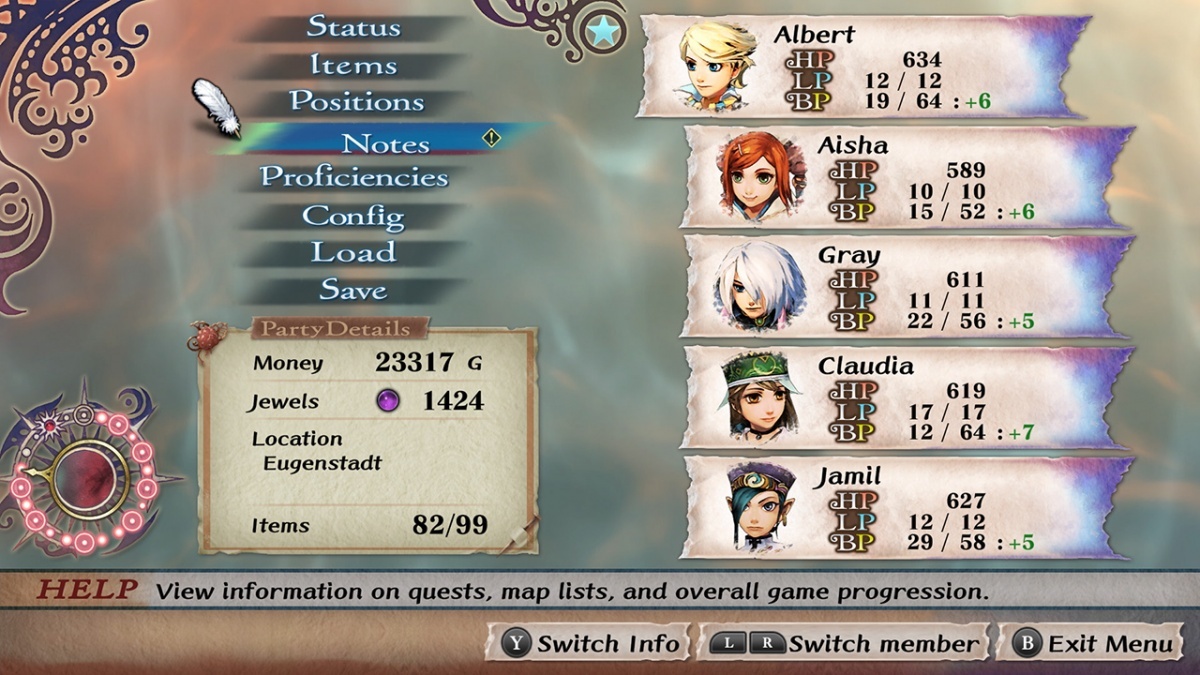
Cubed3 Rating
Average
In the end there are too many substantial knocks against the game to really recommend it at large. For a very specific type of gamer who wants a super deep, complex series of systems to dive into and a world free-form exploration system, they will enjoy this game; but the majority of players will be put off by the unnecessary complexity at so many levels, the lack of a clear progression, and many other small knocks that really take out what could have been cool.

![]() 5/10
5/10
![]() 0
(0 Votes)
0
(0 Votes)
 Out now
Out now  Out now
Out now  Out now
Out now  Out now
Out now Comments
Comments are currently disabled

 Sign In
Sign In Game Details
Game Details Subscribe to this topic
Subscribe to this topic Features
Features







 Top
Top

